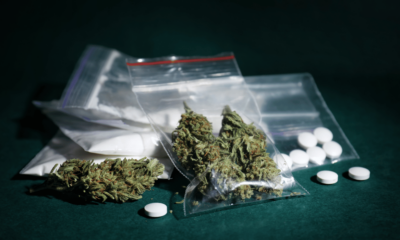Less than a quarter of topical products contained the stated amount of CBD – with the majority containing more than advertised, according to new industry research.
New findings from CBD watchdog, Leafreport, show that more than three quarters of topical CBD products tested, contained the wrong amount of CBD.
Leafreport, worked with Canalysis Laboratories to test 40 CBD topicals, with 31 of the products containing more or less than the stated amount CBD.

Topicals report summary Credit: Leafreport
The amount of CBD found in the products ranged from 12 percent to 99 percent versus what was on the label.
Only nine of 40 tested topical products had CBD levels within 10 percent of the label, which is required for an A rating.
Eleven products received the worst (F) rating for being off 30 percent or more from the label
The majority of the products (31 or 77.5 percent) contained more CBD than advertised.
Lesser-known brands were more likely to perform poorly than major companies; however, there were a couple of small or new brands that received an A.
Once again, these results show that inaccurate labelling and reporting is still a pervasive problem within the CBD industry, as the organisation’s reports on CBD oils, drinks, and edibles have previously suggested.
“These findings are similar to what we found in our previous report on edibles,” said Lital Shafir, head of product at Leafreport.
“This isn’t surprising as topical products are more difficult to formulate than CBD oil and typically use smaller amounts of CBD, making it harder to maintain a consistent amount.”
While some variation is expected from a natural product like hemp-derived CBD, it should still be within reasonable levels.
Industry experts recommend that cannabis products should contain cannabinoid levels that are within 10 percent of the advertised amount. As such, a CBD product should contain anywhere from 90 percent to 110 percent of the amount stated on the label to be considered accurate.
“These tests are important when shopping for CBD because there’s no regulation preventing companies from selling low-quality products that have incorrect CBD levels or carry contaminants,” said Shafir.
“The most important third-party test is called a potency or cannabinoid profile. It shows the amounts of CBD and other cannabinoids in a CBD product to verify the company’s claims.”
Verifying the label accuracy of a CBD product is important for several reasons, in particular, it guarantees to the customer—who may be seeking CBD as a potential therapy for a medical issue—is getting what they paid for.
Shafir added: “Compared to our previous reports, these findings suggest that topical CBD products are not as accurate CBD oils.
“We expected this because topicals are harder to formulate, requiring the blending of CBD with many other ingredients.”

 News6 months ago
News6 months ago
 News6 months ago
News6 months ago
 News6 months ago
News6 months ago
 Science5 months ago
Science5 months ago
 Industry5 months ago
Industry5 months ago
 News6 months ago
News6 months ago
 Medical cannabis6 months ago
Medical cannabis6 months ago
 News5 months ago
News5 months ago













